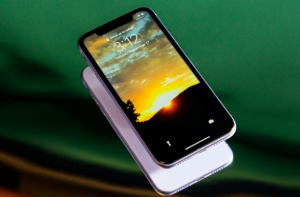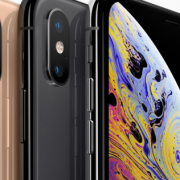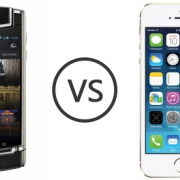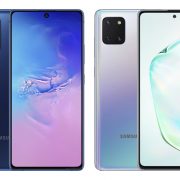The differences coming from software give iPhone 11 users a better experience than Android phones.
Galaxy S20 Series was launched with 5G support, an in-display fingerprint sensor, an upgraded camera. Even the most advanced Galaxy S20 Ultra is equipped with a 108 MP photo sensor. These are considered improvements that iPhone rivals do not have. In contrast, there are features on the “cheap” iPhone 11 that are missing and lacking in the S20 Series.
The screen adjusts the color according to the environment
 In 2017, Apple launched a feature called True Tone. It allows the device screen to automatically adjust the color temperature to match the surrounding light. In other words, this feature will make the iPhone screen look warmer and eliminate blue light harmful to the eyes.
In 2017, Apple launched a feature called True Tone. It allows the device screen to automatically adjust the color temperature to match the surrounding light. In other words, this feature will make the iPhone screen look warmer and eliminate blue light harmful to the eyes.
Apple has started offering True Tone since the iPhone 8 so far. In addition, there are devices like iPad Pro and iPad Air that also feature this useful feature.
On the Galaxy S20, Samsung only provides blue light filter, changing the screen color to orange tones without relying on ambient light to produce the appropriate color tone.
Filter for portrait mode
In the past, both Galaxy and iPhone smartphones were able to take portraits to erase fonts. In 2017, Apple introduced Portrait Lighting on the iPhone 8 Plus and iPhone X.
As the name implies, this feature adds light filters for Portrait Mode with 5 basic effects including Natural, Studio, Contour, Stage Light and Stage Light Mono. iPhone 11 has more lighting options in portrait mode than the Galaxy S20.
But the iPhone XR, because there is no telephoto camera and software portraits, only 3 effects remain. While iPhone XS, XS Max, 11, 11 Pro and 11 Pro Max are increased to 6 effects. Samsung only equips the Galaxy S20 with some Live Focus filters, creates bokeh effects to remove the background and does not allow to adjust the lighting like on the iPhone.
High security iMessage
Recently, Google brought Rich Communication Services (RCS) technology into the messaging application on Android smartphones including the Galaxy S20. This feature helps Galaxy devices to be able to message each other similar to iMessage on iPhone.
Unfortunately, RCS doesn’t provide end-to-end encryption like Apple’s platform. End-to-end encryption will prevent messages from reaching anyone but the recipient and the sender, ensuring the privacy and security of the conversation. Neither the company that operates the platform nor the user messages can access it.




